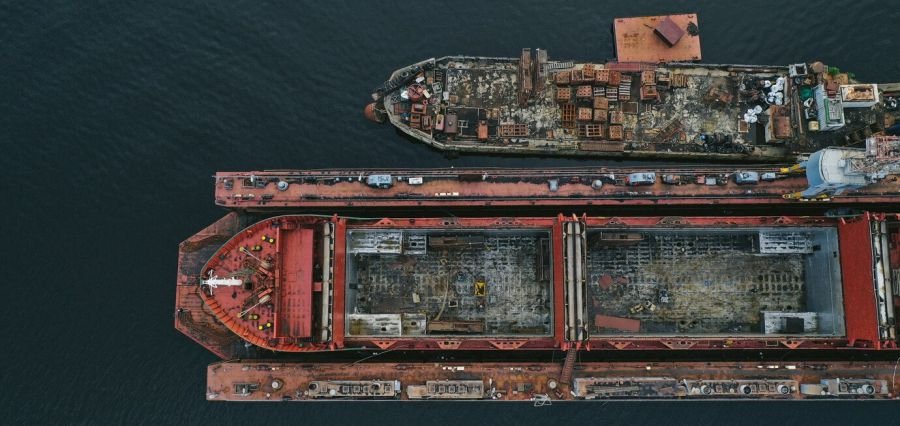The marine sector will face the impact of various developments and difficulties, all thanks to the increase of developing nations, fresh customer categories, and the strong demand for resources. The key issue is; how it is going to be? Will it be or will it not be integrated as a sector with several competitors? Although many important developments in marine industries will influence activities, we think it will be a triangular interplay between individuals, markets, and natural assets, which will influence the future of the marine sector.
Quick Start Guide
- Over the next 20 years, the earth will proceed to grow with certain booms and busts.
- The change to resource restriction and environmental degradation will result in a willingness to develop a more viable environment and fairness in the allocation of riches. In the context of viable development that follows, governments will discover common ground and rapid financial growth.
- States acting in the national interest of themselves. There will be little effort to forge sustainable development and international norms agreement between governments. This is a world of self-interest and zero-sum with a probable increase in protectionism and slower economic growth.
Increase in Usage of Mega-Ships
New mega-ships continue to outsize older designs, while new innovations are boosting the marine industry’s effectiveness and overall viable picture. Over the previous few years, ships have grown larger and brighter and this seems to be an ongoing trend. New schemes are developed each year to outsize the present available mega ships and the sky seems to be the limit. This trend is mainly due to containerization and automation, enabling quicker charging and vessel discharge.
The year of 2019 could be the year of extended business use of smart containers as transport commences technology testing. With Maersk announcing investments in cheap, disposable monitoring systems this year, the sector is already seeing advancement along with previous projects to bring detectors into its full 270,000 refrigerated box fleet. Traxens intends to implement 100,000 intelligent vessels by the end of 2019, including MSC stating that it will provide intelligent container technology for 50,000 dry storage vessels. Furthermore, CargoSmart is linked to more than 40 sea operators to increase the visibility of the supply chain. The extended use of intelligent vessels, according to Navis, will provide another way for shippers to achieve transparency through their production chain in the stream of goods.
Long-Term Demographic Shifts
Over the next century, shifts in worldwide demographics and demographic development rates will have consequences for the marine industry, combined with long-term financial development in emerging economies. An increase in customer expenditure in emerging economies is one result for the marine industry. It will create possibilities for long-term development for container fleets.
Growing Acceptance and Need for Hybrid Solutions
Every day, innovations are produced that decrease boats’ environmental footprint. In both recognition and the need for hybrid alternatives, we can also see development. The great concern is linked to present and future laws on emissions, but also to the public’s sense of cleaner alternatives. Not only are hybrid alternatives more environmentally friendly, but they also lead to lower energy expenses as well as lower energy usage in many instances. Engine improvements, improved propeller efficiency, and high-tech coatings, as well as friction-reducing air pillows and even skysails, reduce pollution of coal and methane. These advances are only the beginning, as additional specific techniques push the naval sector towards a green and eco-friendly age.
Commodity Prices
With most emerging worlds slowing down, carbon, iron ore, and crude petroleum, prices are all probable to stay depressed for the coming years. The 5-10 years of slow development ahead for most shippers leads to low transport prices, especially dry bulk shipping, leaving little space for capability reduction. While reduced rates will stimulate more short-term petroleum usage, the connection between financial development and demand for petroleum will collapse as the globe adopts solutions to hydrocarbon fuels and enhances the effectiveness of car diesel.
Digitization
The enhanced accessibility of shipping information and developments in Big Data analytics provides shippers with higher market and price trends visibility and helps minimize the drastic boom-and-bust periods that have traditionally plagued the sector. The accessibility of such data-driven analytics enhances tactical choices, enabling decision-makers to select ideal paths, climate circumstances, energy usage, and danger of piracy. It will enable players to behave in ways that mitigate their hazards and create solutions for many of their problems.
The marine sector will continue to experience concerns about the renewable energy level, access problems, and public laws with several favorable developments. Furthermore, new innovations cannot be observed in recent years owing to minimal demands from vessel operators/owners and there has been no unique implementation beyond offshore, tankers/containers, freight, fishing, passenger travel such as cruise and yacht, and defense. The sector requires to market fresh clients at some stage. Without that, the development of the industry will reach a cap. Once the regulatory and statutory problems are settled, the sector can see development.









